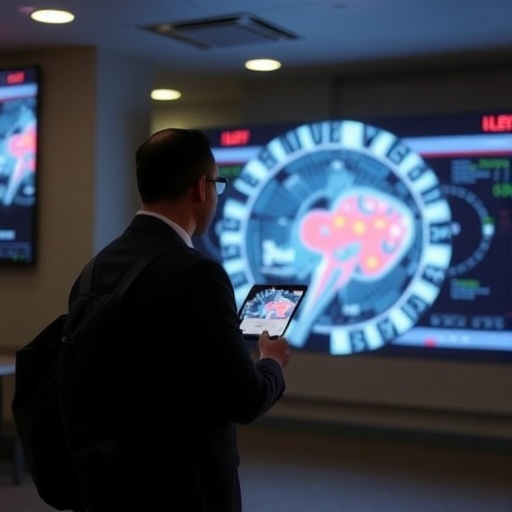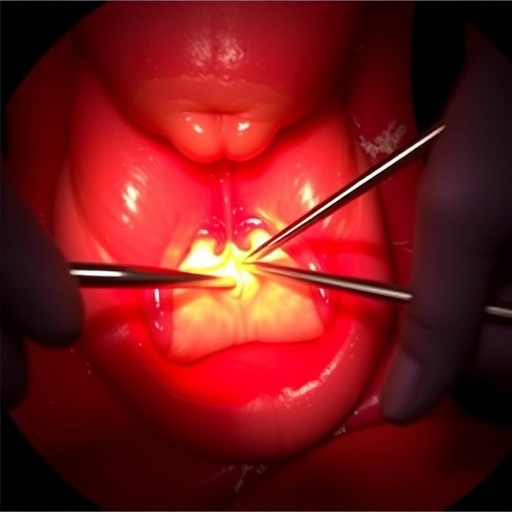
In recent years, the advent of artificial intelligence has reshaped industries and brought forth innovations previously confined to the realm of science fiction. One of the groundbreaking developments is the emergence of large language models (LLMs), with ChatGPT standing at the forefront of this technological revolution. This AI-driven model has sparked significant interest and debate, particularly in the healthcare sector, where the need for efficient communication, accurate data processing, and enhanced patient engagement is paramount. The recent study conducted by Iqbal et al. explores the multifaceted impact of ChatGPT in healthcare, offering a comprehensive umbrella review and synthesis of existing evidence.
The exploration of ChatGPT’s implications in healthcare encapsulates its capability to aid in various domains such as patient interaction, clinical decision support, and health information dissemination. With its advanced language processing capabilities, ChatGPT can facilitate seamless conversations, significantly simplifying the complexity that can often accompany medical jargon. This potential is particularly beneficial for patients who may find it challenging to comprehend intricate medical information. The study highlights that by providing clear and concise explanations, ChatGPT can enhance patient understanding, subsequently leading to improved health outcomes.
Additionally, the research delves into how ChatGPT can serve as an invaluable tool for healthcare professionals. Clinicians and medical staff can benefit from the AI’s ability to sift through extensive medical literature, extracting relevant information quickly and efficiently. In a field where time is of the essence, speed is critical; thus, ChatGPT’s ability to generate summaries of research findings allows practitioners to stay updated with the latest advancements without dedicating excessive time to exhaustive readings. This integration of AI can notably lead to more informed clinical decisions, ultimately benefiting patient care.
Data privacy and ethical considerations surrounding the use of LLMs like ChatGPT are also paramount concerns echoed in the study. As healthcare continues to digitize, the protection of sensitive patient information must remain a top priority. ChatGPT’s design inherently involves vast data processing capabilities; hence, developers and policymakers must establish robust guidelines to mitigate risks associated with data breaches and privacy infringements. Iqbal et al. underline the necessity for stringent regulations that ensure AI tools in healthcare adhere to ethical standards and prioritize patient confidentiality while promoting innovation.
Another dimension of ChatGPT’s application discussed in the study is its role in medical education. The integration of AI into educational curricula can prove transformative for medical students and healthcare professionals in training. By simulating patient scenarios or providing instant feedback on clinical decision-making processes, ChatGPT can help create a more interactive and engaging educational experience. This enhanced learning model encourages active participation, allowing students to hone their skills in a risk-free environment, preparing them better for real-world challenges.
The global health landscape is also considered. The pandemic has exposed gaps in healthcare systems worldwide, including communication barriers and inadequacies in information dissemination. ChatGPT has the potential to bridge these gaps, particularly in under-resourced areas where access to healthcare professionals may be limited. By serving as a virtual health assistant, ChatGPT can provide essential health information, guidance on symptoms, and recommendations for care, ultimately democratizing access to healthcare resources.
Moreover, mental health services are experiencing a growing integration of AI technologies, and ChatGPT plays a vital role in this evolution. The study reveals that AI-assisted mental health applications can offer a supportive avenue for individuals seeking help. While it cannot replace professionals, ChatGPT can provide preliminary support, coping strategies, or even therapeutic dialogues, thereby expanding access to mental health resources. This is especially crucial in environments where mental health stigma may hinder individuals from seeking traditional care.
The transformative potential of ChatGPT in telemedicine is another noteworthy topic illuminated in the research. The rise of telehealth, particularly during the COVID-19 pandemic, has shown how healthcare delivery can evolve. ChatGPT can augment telehealth services by assisting in appointment scheduling, providing pre-consultation information, and answering common questions. This streamlining of processes not only improves patient experience but also encourages more individuals to engage with telehealth options, which is essential in promoting continuous care.
As healthcare continues to navigate the complexities of technological advancements, the integration of ChatGPT prompts conversations about balancing innovation with clinical responsibility. The study by Iqbal et al. emphasizes the importance of ongoing research to explore not only the benefits of AI applications but also the potential pitfalls. The holistic understanding of how AI can forestall adverse effects while bolstering care will be imperative as its use becomes increasingly prevalent in the healthcare landscape.
In summary, Iqbal et al.’s comprehensive review sheds light on the multilayered impact of ChatGPT in healthcare. With its ability to facilitate better communication, improve clinical decision-making, and enhance patient engagement, ChatGPT stands poised to transform the way healthcare is delivered. However, as its integration unfolds, critical discussions around ethical implications, data privacy, and professional accountability will be essential in steering the implementation of AI technologies in a direction that serves both innovation and patient welfare. The future of healthcare could very well depend on how successfully these conversations are navigated in the coming years.
Emphasizing the balance between technological innovation and human connection will be vital as healthcare evolves. The study serves as a clarion call for stakeholders to engage with AI thoughtfully, ensuring that as we harness the power of models like ChatGPT, we do so with a steadfast commitment to excellence in patient care and ethical responsibility. The healthcare sector stands on the cusp of a new era, one where the interplay between human touch and artificial intelligence could redefine the essence of care, making it more accessible, comprehensive, and effective.
Subject of Research: The impact of large language models (ChatGPT) in healthcare
Article Title: Impact of large language model (ChatGPT) in healthcare: an umbrella review and evidence synthesis
Article References:
Iqbal, U., Tanweer, A., Rahmanti, A.R. et al. Impact of large language model (ChatGPT) in healthcare: an umbrella review and evidence synthesis.
J Biomed Sci 32, 45 (2025). https://doi.org/10.1186/s12929-025-01131-z
Image Credits: AI Generated
DOI: 10.1186/s12929-025-01131-z
Keywords: AI in healthcare, ChatGPT, healthcare innovation, mental health, telemedicine, healthcare communication, ethical considerations, patient engagement.
Tags: AI-driven communication in healthcareArtificial Intelligence in MedicineChatGPT applications in healthcareClinical Decision Support Systemscomprehensive review of AI in healthcareenhancing patient understanding with AIhealth information dissemination technologyhealthcare innovations with language modelslarge language models in healthcarepatient engagement through AIpatient interaction and AI toolstransforming healthcare with AI technology




